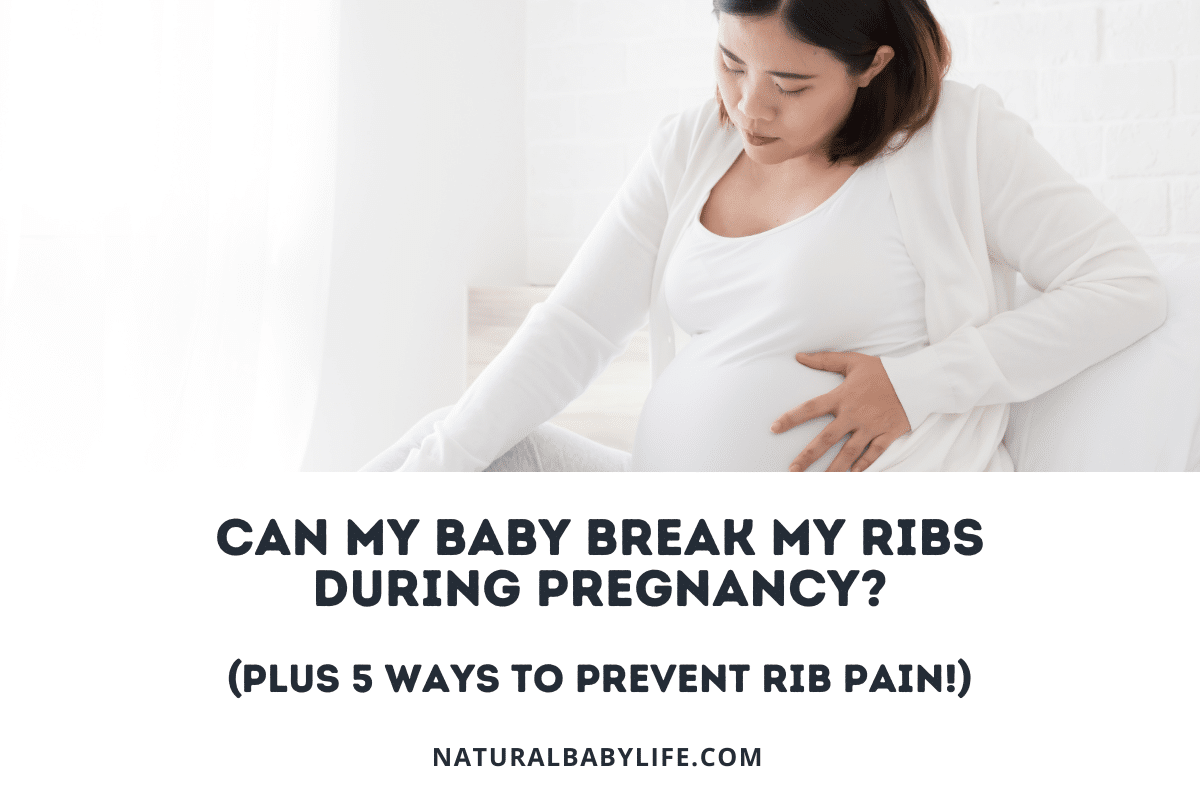Have you found yourself throwing up white foam while pregnant?
Throwing up white foam is most often caused by underlying issues that increase in frequency and severity during pregnancy, such as nausea and acid reflux. Many moms experience this unusual symptom during their pregnancy, and it actually pretty common and is easily treated.
Read on to learn more about the causes of throwing up white foam, the different types of vomit to watch out for when pregnant, and how to treat and avoid acid reflux during your pregnancy.
Table of Contents
Why am I throwing up white foam while pregnant?
About 3 out of 4 moms will experience some level of morning sickness and nausea during their pregnancy. Unfortunately, this often results in vomiting and even throwing up foam.
Although it may be worrisome when you all of a sudden start throwing up white foam, you can rest assured that this can be very “normal” for pregnant women and is caused by hormonal changes.
When in doubt, always talk to your doctor about any symptoms you may be experiencing. However, you can also begin to treat this condition on your own by treating the underlying causes, such as acid reflux.
What does it mean when you throw up white foam while pregnant?
Acid reflux increases during pregnancy due to a variety of factors including hormonal changes and increased pressure on the stomach area. And although the exact cause is mostly unknown, many doctors agree that morning sickness is also most likely caused by hormones.
White or foamy vomit is stomach acid mixed with saliva. In particular, the acid from an empty stomach or reflux combines with the excess saliva produced when you have nausea. This is why you may find that you are throwing up white foam more often in the morning on an empty stomach.
Nausea, vomiting, and heartburn are all more common during pregnancy and can be more severe than you are used to. All of these factors combine to make throwing up white foam a fairly common occurrence in pregnant women suffering from morning sickness.
Types of vomit during pregnancy
You may experience several different kinds of sickness during pregnancy, including:
Morning Sickness – According to the American College of Obstetricians and Gynecologists (ACOG), morning sickness typically peaks around 9-14 weeks of pregnancy. Generally, morning sickness does not harm your health or your baby’s health, but it can make your life difficult.
Hyperemesis Gravidarum – A small percentage of women go on to develop severe morning sickness that is known as Hyperemesis Gravidarum. This condition is typically diagnosed if you are vomiting more than 2 or 3 times a day and are experiencing near-constant nausea. Women can develop serious complications such as dehydration and malnourishment due to being unable to keep food and drinks down. HG may require medication, IV fluids, bed rest, and even long-term hospitalization to safely reach your due date.
Food Poisoning – Did you know that pregnant women are especially susceptible to foodborne illnesses due to their weakened immune systems? If you have additional symptoms not found in morning sickness such as headaches and body aches, and you aren’t sick, it is likely to be food poisoning.
Does acid reflux get worse during pregnancy?
Acid reflux occurs when stomach acid escapes the stomach and flows up into your esophagus. Acid reflux can be mild, moderate, or severe and can be acute or chronic. Chronic acid reflux is known as GERD and is typically managed through diet, lifestyle changes, and OTC or prescription medications. Heartburn is the feeling that this acid most commonly produces, causing you to feel a burning sensation in your chest and throat.
A whole host of gastrointestinal issues such as heartburn, acid reflux, and GERD can all increase during pregnancy. You are more likely to experience acid reflux during pregnancy if you had symptoms prior to pregnancy or have been pregnant before.
Symptoms also most commonly occur during the 2nd or 3rd trimester. Some studies have shown that nearly half of all pregnant women experience acid reflux at one point or another.
Certain foods can make acid reflux worse, including acidic foods such as tomatoes, citrus fruits like oranges, spicy food, garlic, and onions.
Why does pregnancy cause acid reflux?
There are a few main reasons why pregnancy can cause or exacerbate acid reflux and its family of GI symptoms such as heartburn, nausea, and vomiting.
Hormones
Progesterone, which increases immensely during pregnancy, can have a relaxing effect on the lower portion of your esophageal sphincter, making it easier for stomach acid to move upwards into the esophagus.
Fluctuating levels of other hormones also can affect your digestive system in various ways, such as slowing it down and causing bloating and heartburn.
Pressure
The main cause of acid reflux during pregnancy is pure anatomy.
The increased pressure on your stomach caused by your growing uterus can sometimes force stomach acid into the esophagus.
Eating smaller, more frequent meals can help, particularly as you progress along into the later stages of your pregnancy.
Preventing acid reflux during pregnancy
Luckily, there are some simple lifestyle and diet changes you can make that should help alleviate much of your acid reflux symptoms.
Don’t leave your stomach empty. As hard as it is, the more you can eat – the better. Eating something bland can help settle and soothe your stomach. Even if you can only tolerate a few bites of a saltine cracker, having something in your stomach is better than nothing. This will also help with nausea that causes you to throw up white foam.
Eat smaller meals. Eating smaller, more frequent meals is one of the best ways to help prevent GERD symptoms and acid reflux.
Wait to lie down after eating. A good rule of thumb is to wait at least 2-3 hours for your stomach to settle before lying down. Many women even choose to sleep sitting up (or at an incline with a wedge) if their symptoms are particularly bad.
Avoid spicy foods. It goes without saying that if you are experiencing severe heartburn and acid reflux during pregnancy, you probably shouldn’t chow down on those spicy shrimp tacos.
Avoid other triggers. Common known triggers that can make heartburn worse include alcohol, smoking, caffeine, chocolate, mint, garlic, onions, acidic foods like tomatoes, carbonated drinks, and citrus fruits. Try to avoid these things as much as possible.
Treating acid reflux during pregnancy
If you are struggling to find relief from reflux and heartburn with preventative measures, it may be worth having a conversation with your doctor about medications and remedies you can try.
Take safe OTC medications. Remember to avoid any OTC antacids with aspirin in them unless you have cleared it with your doctor first. (Aspirin can cause complications in pregnant women and their babies) It is also recommended that you avoid antacids with sodium bicarbonate or magnesium trisilicate when pregnant because they may not be safe. Instead, look for antacids with calcium carbonate (like Tums).
Try natural remedies. Many women swear by ginger or ginger tea for soothing reflux and an upset stomach. Papaya enzyme supplements have also been shown to help relieve mild heartburn in some women.
Consider a prescription. Some doctors may recommend prescription drugs such as Prevacid, Sucralfate, or Rabeprazole, but check with your doctor to get the latest information on which medications are safe during pregnancy.











